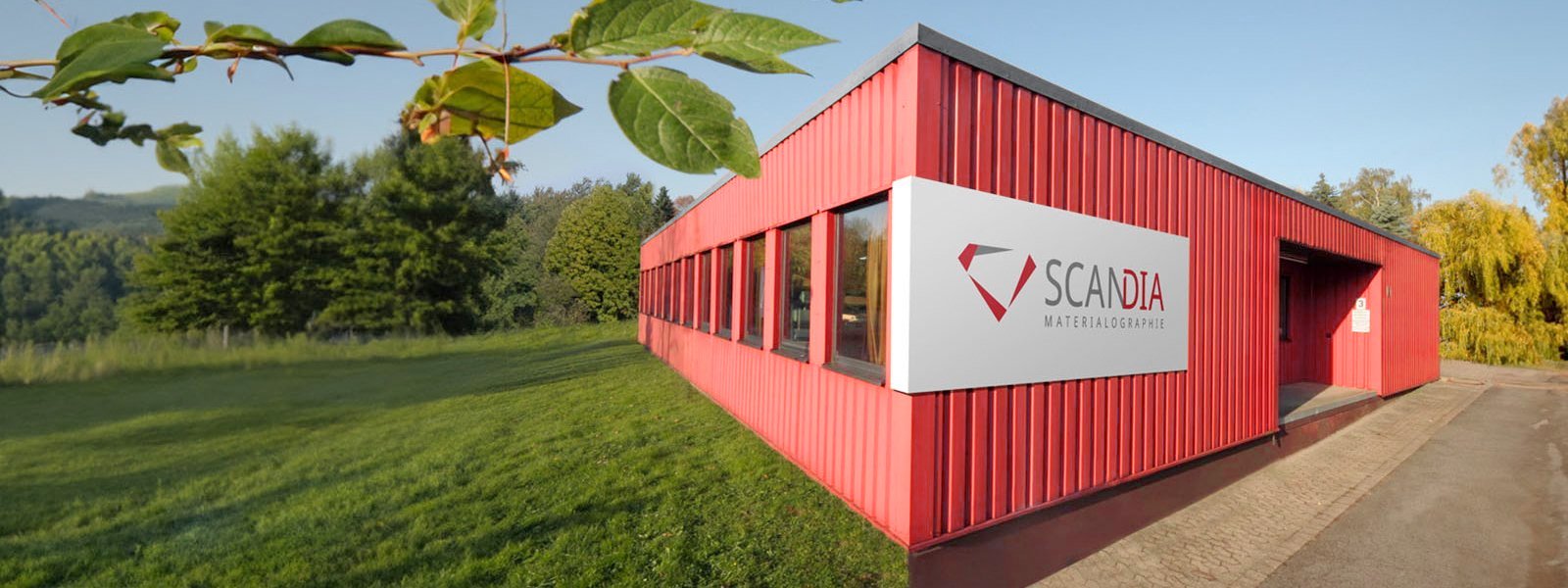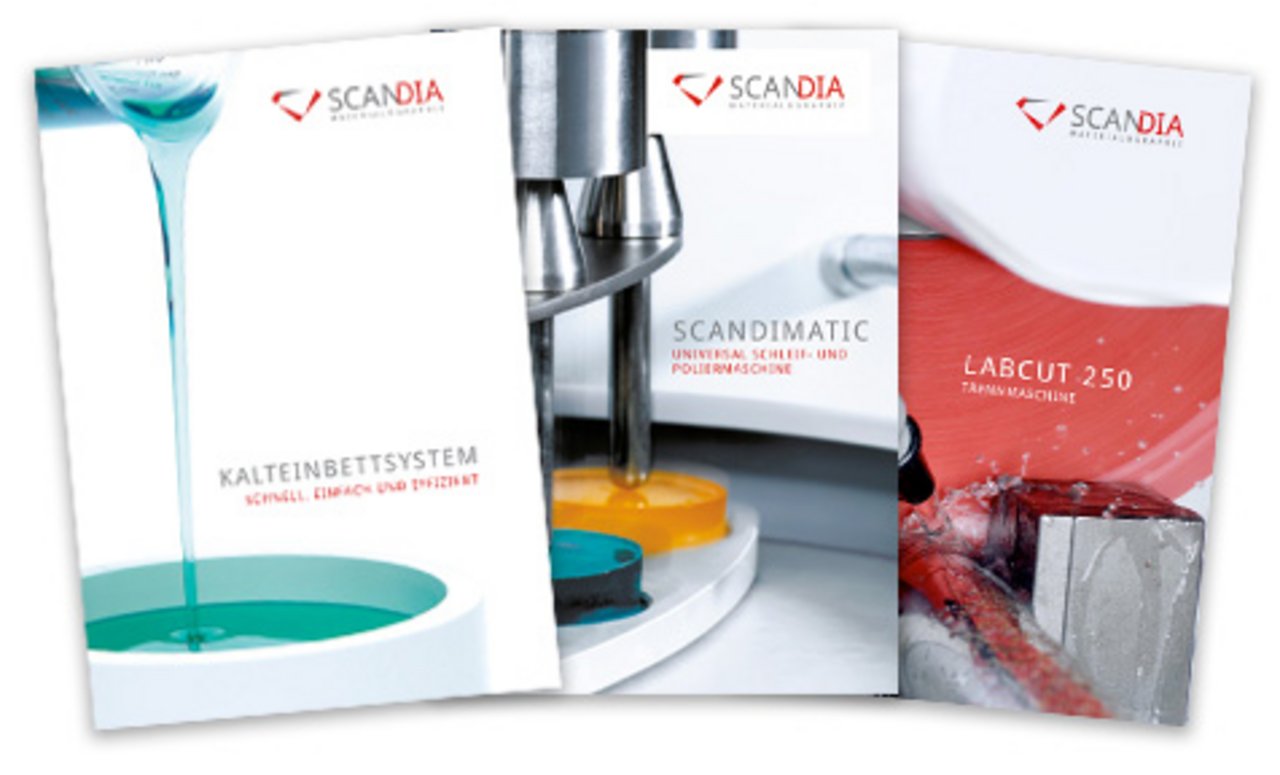Erling Juul Nielson founded the company in 1963 in Vipperod, Denmark under the name SCANDINAVIAN DIAMOND PRODUCTS - SCAN-DIA.
Erling Juul Nielson quickly established a complete range of equipment and consumables for metallography. Among the outstanding products, which are still highly topical today, were the cold embedding process with world-famous products such as SCANDIPLAST and the SCANDIFORMS - as well as the grinding and polishing equipment of the SCANDIMATIC series. Erling Juul Nielson had the basic idea and was decisively responsible for the development towards a modern, systematised diamond polishing system, which in the 1960s replaced the previously dominant process of alumina polishing.
Through its business development, the company quickly grew beyond the borders of Denmark. Hans Peter Tempelmann took over the exclusive agencies for Germany, Austria and Switzerland in 1964. In 1972 he bought the company and transferred it to Hagen in Westphalia. Here it became established under the name SCAN-DIA Hans P. Tempelmann GmbH.
Seit 1995 wird das Unternehmen von Dipl.-Ing. Matthias Blankenagel geführt, der im Unternehmen seit 1985 seine Erfahrungen in der Metallographie sammelte.
SCAN-DIA can now look back on 50 years of company history.
Today, the company offers a well-balanced and customer-oriented programme of functional and practical equipment and consumables for the perfect preparation of metallographic and materialographic specimens.
SCAN-DIA is represented internationally on several continents and in numerous countries.
Development and production of laboratory equipment and consumables for materialography
SCAN-DIA stands for sustainable, economical and innovative product development. We develop either in-house or in cooperation with our strong partners. In any case, decades of experience and knowledge are incorporated into forward-looking product development. All products are tested in our own application laboratory and are subject to regular quality controls.
The result: optimal products and materials for your company.
The customer takes centre stage
Individual advice
SCAN-DIA and its experienced staff will be happy to assist you with your product selection. For better coordination with your requirements, a metallographic section is prepared in our own application laboratory, if necessary. Each individual preparation step is documented in the laboratory report and serves as the basis for an optimal selection of products. From this, an individual offer is made, which forms the basis for your future decisions.
Fast delivery from stock
SCAN-DIA has all products in stock in sufficient quantities. As a rule, all orders are shipped within 24 hours by parcel service.
SCAN-DIA also manufactures according to your individual needs
In addition to the comprehensive standard programme, SCAN-DIA is also available as a partner for customised solutions, namely when our standard programme does not offer the right solution for your specific problem. In close cooperation with you, SCAN-DIA develops a concept that meets your requirements and takes into account the experience and knowledge of your and our staff. The subsequent craftsmanship is carried out in-house or with qualified partners.
Information
In the field of materialography, part of materials sciences, the structure of ferrous and non-ferrous materials (such as composites, ceramics, and plastics) is studied.
"Metallography" is the study of purely metallic materials.
Materialography wants to quantitatively and qualitatively analyze microstructures by means of various microscope technologies. Statements are made relating to the microstructure as well as to the properties of a material.
First step of the work process is the sample preparation. A material sample is prepared for the microscopic examination of its crystalline structure.
A scratch-free polished section providing a sharp and smooth sample surface is produced, allowing for a representative observation of the material structure. During the preparation, it is particularly important to avoid deformation, smearing, or scratches. Therefore, precise working is required using high quality grinding, polishing, and cleaning agents. Furthermore, depending on the observation criteria, the section may be etched using various solutions.
In general, the materials scientist needs a broad knowledge of material properties, material production, and further material processing in order to avoid preparation errors and errors during the structural analysis.
Materials scientists work in the fields of quality assurance, in failure analysis, and in the research and development domain.
The microscopic examination of the materials provides important conclusions on the production conditions and thus helps to assess production processes as well as to shed light on cases of failure. Moreover, the results of materialographic research build the basis for the development of new materials that are optimally adapted to their respective operating conditions.
Contact
Our experts are happy to answer your questions. SCAN-DIA has a dedicated team of professionals who provide in-depth expertise to offer you personalised support and ensure you get the best possible solution.
Whether you have questions about SCAN-DIA products, technical problems or industry issues, don't hesitate to call. They will be happy to help you with your concerns.


